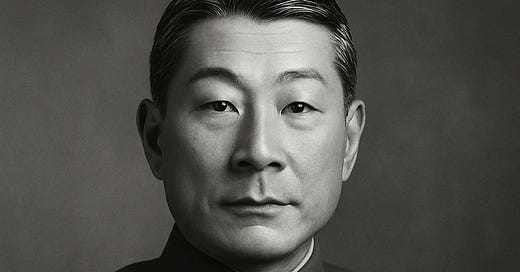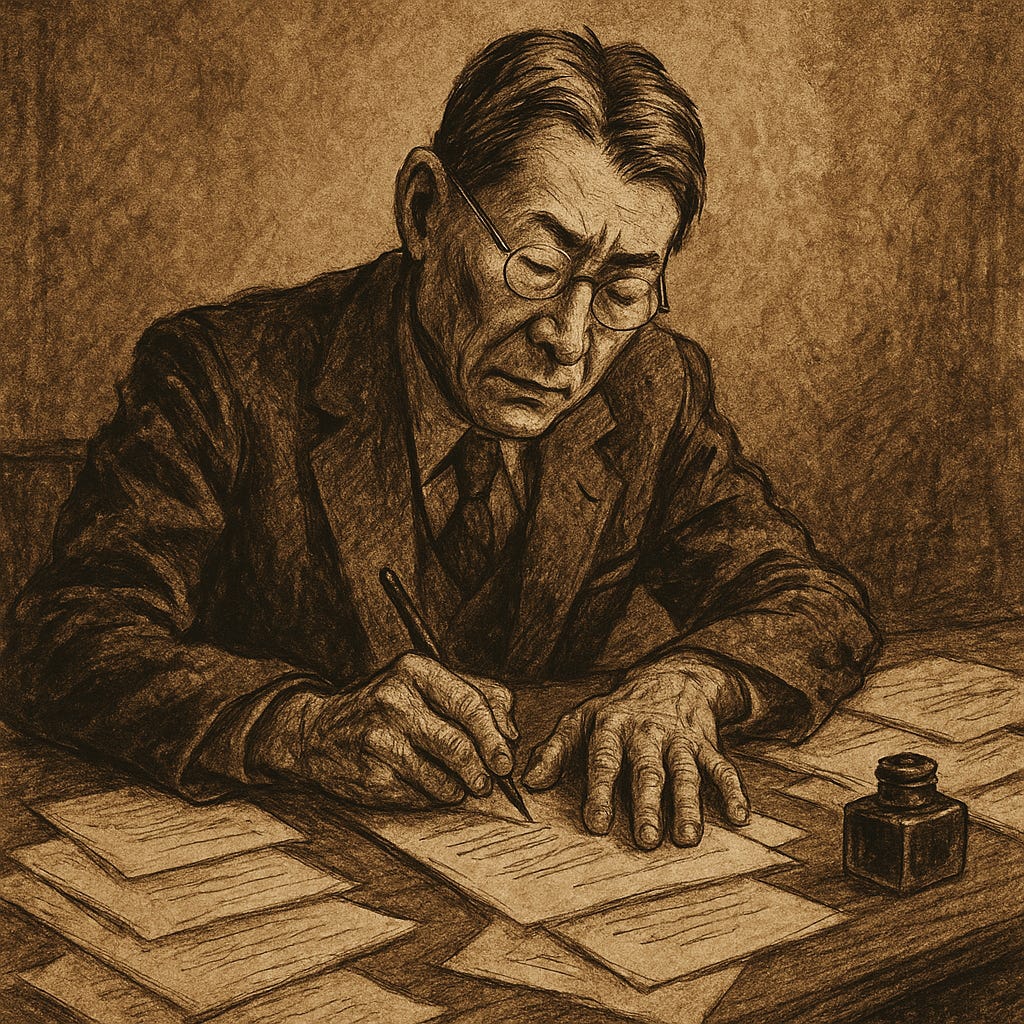Chiune Sugihara: The Quiet Savior Who Defied an Empire
The Diplomat Whose Silent Courage Saved Thousands from Oblivion
Silent Defiance: The Moment of Truth
On a quiet morning in Kaunas, Lithuania, in the summer of 1940, a Japanese diplomat sat at his desk, surrounded by the desperation of thousands of people whose lives hung by a fragile thread. Outside his window stood Jewish refugees, silent and hopeful, waiting for an answer that could spell life or death. Chiune Sugihara, calm and resolute, picked up his pen. With each stroke, he quietly, bravely defied the empire he served, altering the course of history without raising his voice.
His actions were not announced with speeches or proclamations. Instead, Sugihara’s courage was quiet, steady, and profound. In the silence of his office, amid surveillance and threats, he performed acts of heroism so subtle and yet so profound that their impact would reverberate quietly through generations.
Chiune Sugihara: Diplomat Turned Quiet Hero
Chiune Sugihara was not born into extraordinary privilege or fame. He was a disciplined and reserved man whose professional life was dedicated to diplomacy, service, and obedience. A skilled linguist and diplomat, Sugihara served Japan faithfully in positions around the world, eventually stationed as a vice-consul in Lithuania as Europe descended into the horrors of World War II. Sugihara’s task was clear—gather intelligence and follow orders. But history had other plans, placing upon his shoulders an impossible choice, demanding a measure of courage beyond mere professional responsibility.
Despite the silence history afforded him, Sugihara's poise in the face of moral crisis would quietly define him as a true hero—one whose courage emerged not from bravado, but from an unyielding moral clarity.
A Visa for Life: Courage Under Surveillance
In 1940, as Nazi forces swept across Europe, Lithuania became an urgent refuge for thousands of Jewish people desperately fleeing persecution. Soon, crowds of refugees appeared at Sugihara’s consulate, pleading for transit visas that would allow safe passage through Japanese territories to eventual safety. Sugihara sent repeated requests to his superiors in Tokyo, asking permission to issue the visas. Each request was met with stern rejection, accompanied by strict orders to cease immediately.
But in the quiet space between orders and conscience, Sugihara made his choice. He understood the weight of his actions, the consequences that could follow—ruin of career, reputation, and possibly his life. Yet he also understood the human cost of obedience to an immoral command.
Sugihara quietly began issuing transit visas, defying explicit instructions. Day after day, from dawn until nightfall, he wrote visas by hand, tirelessly filling document after document. Eyewitnesses recalled Sugihara at his desk, fingers cramped, eyes heavy, driven by silent resolve. He would not stop until every applicant had hope.
Would you have defied an empire—with no audience, no reward—just to do what was right?
Most would fold. Sugihara did not.
As surveillance tightened and threats intensified, Sugihara maintained his calm clarity. His poise never faltered. His demeanor was stoic, almost serene, under pressure that would have broken a lesser man. Yet internally, the weight of responsibility must have been profound. He risked everything—his family’s well-being, his position, his very freedom—for strangers whose lives depended on the ink drying on paper.
Thousands Saved, One Name Forgotten
In a mere few weeks, Sugihara issued thousands of transit visas—an estimated 6,000 lives directly spared because of his quiet heroism. The ripple effects of his actions multiplied exponentially over generations. Children, grandchildren, entire family trees that would have otherwise ended in tragedy continued to flourish, quietly carrying forward the legacy of the man who had saved them.
Yet, for decades Sugihara himself remained unrecognized. After the war, his act of courage went unacknowledged in his own country, Japan treating him not as a hero but as a disgraced diplomat. It was only years later that survivors began speaking openly, bringing his deeds gently into the light. Eventually, Sugihara was named among the Righteous Among the Nations by Yad Vashem, Israel's Holocaust memorial, yet even today he remains largely unknown to the wider world.
Sugihara never sought applause or recognition. His reward lay in the quiet knowledge that he had remained true to his moral compass. He lived his remaining years modestly, never demanding acknowledgment. He had acted not out of ambition or desire for fame but out of a profound understanding of right and wrong, quietly demonstrating the highest form of poise and courage.
Would You Have Done the Same?
Ask yourself quietly: Would you have done what Chiune Sugihara did? Could you have risked everything—not in glory, not with the promise of recognition, but quietly, in defiance of authority, simply because it was the right thing to do? His story is powerful because it confronts us gently yet relentlessly with the limits of our own courage.
We admire heroes who act loudly, celebrated in headlines and history books. But Sugihara's heroism poses a more humbling, uncomfortable challenge: How often do we overlook silent heroes among us today? How often do we fail to notice the quiet, steadfast courage of ordinary people whose extraordinary morality goes unnoticed?
Honor Quiet Heroes—Before Their Voices Fade
Chiune Sugihara’s quiet legacy reminds us of a powerful truth: heroism often speaks softly. His story, and many others like it, deserve to be told, remembered, and honored. But these stories only endure when we support them—when we choose to keep their memory alive.
If you feel the quiet urgency of these stories, join us. Subscribe today to become part of a community dedicated to uncovering and preserving the quiet heroes of history—those whose silent courage reminds us what humanity can and should be.
Together, we can honor those like Chiune Sugihara, ensuring their quiet bravery is never forgotten.
Subscribe now, and make sure courage like his always has a voice.









